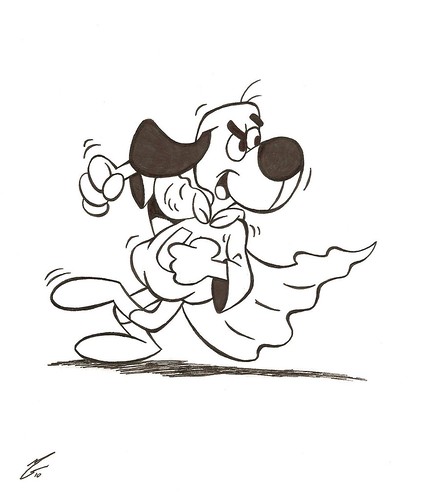So how biased are we? A few years ago, a graduate student named Nadav Goldschmied decided to find out. Goldschmied, who’s now a professor of psychology at the University of San Diego, invited students to read a fake newspaper article about an upcoming rugby match. According to the article, odds makers had given one of the teams just a 30 percent chance of victory. When asked to make their own predictions, the students were more optimistic. Instead of pegging the underdog’s odds at 30 percent, they guessed it was more like 41 percent. If the article specifically referred to the disadvantaged team as an “underdog,” the effect was even stronger, with the students pegging the chance of victory at 44 percent.
Why do we always root for the underdog?
.
Daniel Engber has a long and fascinating piece in Slate about the psychology of underdogs. It references a few studies to answer the question, “Do we really love underdogs?”
Definitely:
In 1991, a pair of researchers at Bowling Green State University, Jimmy Frazier and Eldon Snyder, published a paper on what they called “the underdog concept in sport.” Frazier and Snyder posed a simple hypothetical scenario to more than 100 college students: Two teams, A and B, were meeting in a best-of-seven playoff series for some unidentified sport, and Team A was “highly favored” to win. Which team would the students root for?
Eighty-one percent chose the underdog.
Then the students were asked to imagine that Team B had somehow managed to win the first three games of the series. Would the subjects root for the sweep or switch allegiance to the favorite? Half of those who first picked the underdog now said they’d support Team A. It was the same, cockamamie approach I’d taken to Butler and Michigan State: Root, root, root for the losing team—no matter what.
And:
Goldschmied repeated the experiment twice more, replacing the rugby teams with mayoral candidates and then a pair of businesses competing for a contract. In each case, the results were the same: The mere act of labeling one side as an underdog made the students think they were more likely to win.
Why? Doesn’t “everyone love a winner”?
Rooting for the underdog is the emotionally maximizing choice:
…it may be smarter to gamble your emotions on the team that’s most likely to reward you with a stirring victory—and that’s least likely to crush your soul. For Frazier and Snyder, that means betting on the underdog: If they win, it’s the greatest feeling in the world. And if they lose—well, you kind of knew that would happen all along. The same reasoning applies in reverse: If you’re pulling for the favorite, then a loss cuts extra deep, while a victory merely delivers what you thought you deserved. “Thus a utilitarian model would indeed predict the underdog effect,” the authors observe.
Join over 262,000 readers. Get a free weekly update via email here.
Related posts:
How To Get People To Like You: 7 Ways From An FBI Behavior Expert
How To Stop Being Lazy And Get More Done
New Harvard Research Reveals A Fun Way To Be More Successful




